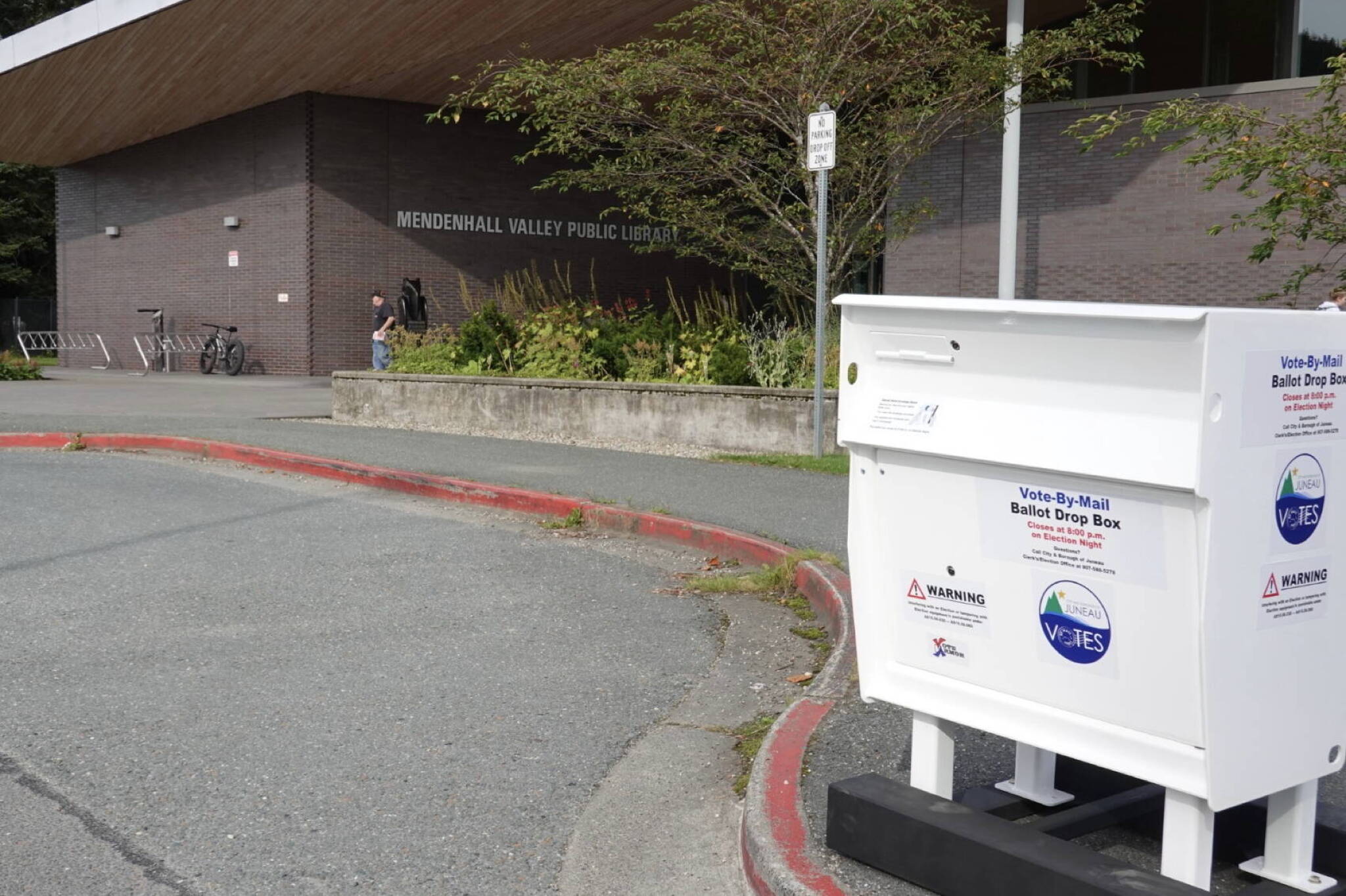Alaska’s elections may see a drastic shakeup under an executive order signed by President Donald Trump on Tuesday requiring all federal election ballots to be received by Election Day, which would negate a significant percentage of mailed and other ballots that can be counted up to 15 days later under current state law.
Trump’s executive order also requires proof of citizenship to register to vote in federal elections. An estimated 9% of adult U.S. citizens don’t have such proof readily available, with disproportionately high ratios among minorities, younger citizens and independent voters, according to a 2023 report by the Brennan Center for Justice.
Both changes would primarily inhibit people who tend to vote for Democratic candidates, according to election reports and political analysts.
About 255,000 votes by Alaskans were counted as of early Wednesday morning after the Nov. 8, 2024, election, according to the state Division of Elections. About 86,000 more votes were included in the results certified Nov. 30, with elections officials receiving about 55,000 absentee ballots by the end of Election Day, meaning the remaining tallied votes were about 9% of the total cast.
The political leanings of late-counted votes are reflected in Alaska’s U.S. House race, where Republican Nick Begich III and Democrat Mary Peltola were the major candidates. Begich, as the challenger, led Peltola by about 5% in an initial Election Night count, but Peltola narrowed the gap to 2% by Nov. 20 when a final ballot tally took place.
Alaska is among 18 states, along with Puerto Rico, that accept mailed ballots received after Election Day as long they are postmarked by that date, according to the National Conference of State Legislatures. In Alaska ballots can arrive up to 10 days after Election Day from U.S. locations and 15 days from overseas.
Legislation with a similar requirement that absentee ballots be received by Election Day — along with many other voting law revisions — has been introduced this session by Gov. Mike Dunleavy. The governor, like many other Trump-aligned Republican politicians nationwide, is seeking such changes in the wake of the president’s frequent claims over the years that elections are rigged, including his persisting and false claim Joe Biden didn’t legitimately win the 2020 election.
“The Alaska division of elections strives to ensure the integrity and transparency of elections,” Dunleavy wrote in a Jan. 21 letter when he submitted the bill to the Alaska Legislature for introduction. “Nevertheless, many Alaskans have legitimate concerns about the reliability of elections due to outdated and impractical provisions of our election code. This bill aims to reform certain aspects of the Alaska election code in order to bolster the public’s trust in our election system.”
A further argument in favor of ensuring Alaska’s voting laws comply with Trump’s executive order was made Tuesday by state Rep. Kevin McCabe (R-Big Lake) during a House State Affairs Committee meeting where legislation supported by the Democratic-led majority that generally eases voter participation was considered.
“A bit of what we’re doing right now is probably going to be mooted by this executive order or we won’t get federal assistance for our elections,” McCabe told the other committee members. “It says non-compliant states may face prioritized federal enforcement of election integrity laws and loss of funding given their unwillingness to police fraud.”
McCabe proposed 15 amendments during the hearing — all authored by Rep. Sarah Vance (R-Homer), who was absent from the meeting — arguing “a bit of what we’re doing with these amendments is trying to do exactly what the president just did with his executive order.” All but two amendments making a minor change to election observer rules and a more substantive restriction on the use of ballot drop boxes were rejected along majority-minority caucus lines.
Rep. Ashley Carrick (D-Fairbanks), the committee’s chair, said in response that “I would also note that many of the executive orders that have been signed are tied up in the courts right now.” Among the executive orders being challenged are ending birthright citizenship, nullifying some federal civil service protections, banning transgender people from serving in the military, suspending asylum access at the southern border and dismantling the U.S. Department of Education.
Legal challenges to Trump’s executive order on elections are widely expected since say states have wide latitude on setting their rules.
“Under our American system, voting and voter registration are predominantly responsibilities of the states, with Congress constitutionally empowered to add some overlays through legislation of general applicability,” Walter Olson, a senior fellow at the libertarian Cato Institute, wrote in response to Trump’s order. “A president cannot change those basics by putting out an executive order, nor may he commandeer the states, through funding blackmail or otherwise, into acting as instruments of his pleasure.”
Carrick, in an interview after Tuesday’s committee meeting, said adverse impacts of Trump’s election executive order will be especially far-reaching in Alaska.
”I’m really concerned about how the executive order on elections is going to affect our unique circumstances,” she said. “How is this going to impact specifically the large number of military families we have, rural voters, the folks who are doing absentee ballots? There’s just so much interest in those things.”
Among the other provisions of Trump’s order is directing federal agencies to provide data to election officials that may help identify noncitizens on voter registration lists. It also declares the U.S. attorney general should “prioritize enforcement of federal election integrity laws” in states that don’t share information about suspected election crimes with the federal government.
• Contact Mark Sabbatini at mark.sabbatini@juneauempire.com or (907) 957-2306.

